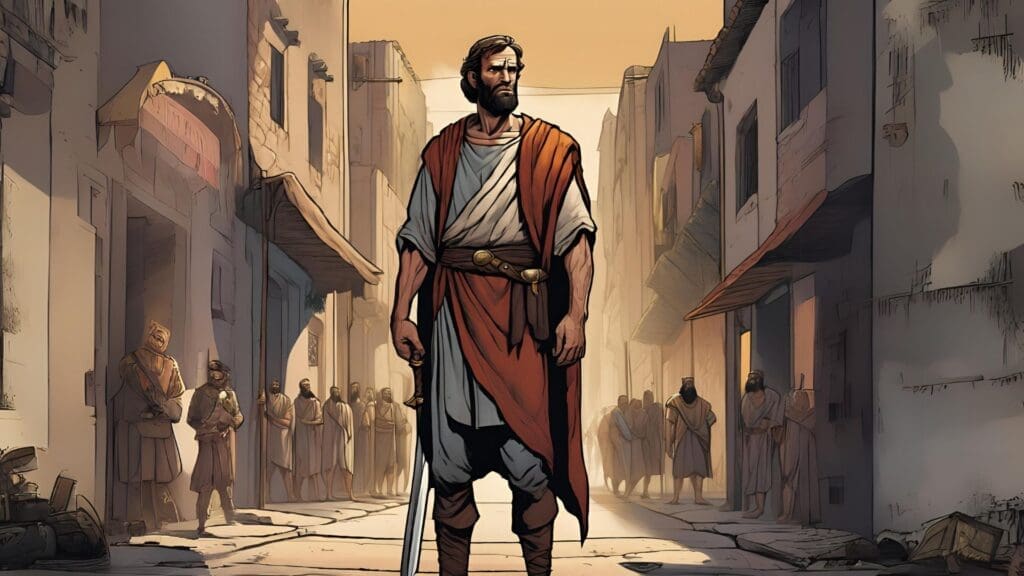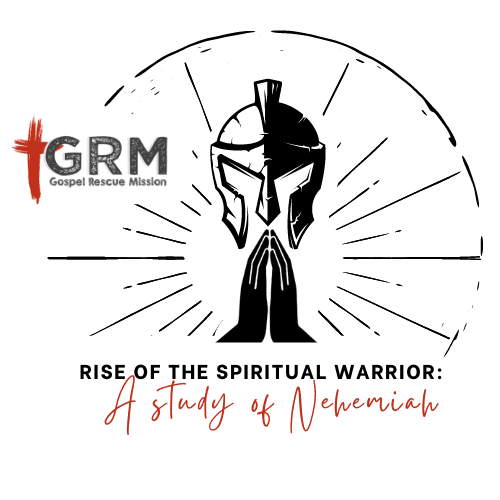Identity can be wrapped up in our titles and reputations. Be careful with this. Both of those things can change dramatically. But when you are living in your identity as how God sees you, that does not change with the latest layoffs or social media posts. As a Spiritual leader, you should be learning and growing, but that does not mean that you change yourself every day. This creates uncertainty for those that are choosing to follow you.
Nehemiah saw himself in light of his culture. He was a Jewish man. A vast amount of the Jewish nation, including Nehemiah, were in exile. What does it feel like to be taken from your homeland against your will? How might that shape how you see yourself? Consider that you are a part of a conquered nation. How does that feel? Most Americans don’t have any idea what that might feel like, so we will have to use our imaginations. Historically, we are not good at imaging this. We like to beat our chests and say that spoils go to the victors. The real question is how we treat those that have been oppressed.
Before you start to dismiss me as advocating critical race theory, listen carefully. I am not saying that you are responsible for the oppression of any race, culture, or gender. What I am challenging us to do is to take a moment and consider… what it would be like to know that your ancestors were treated like animals? What might it have been like to be a woman, even just a generation ago, who was assumed to be weak-minded and frail? How can you lead those with those traits to live their best lives? Even if that person is you?
Many years ago, a decision was made that shapes our world more than we often grasp. While to give a fair discussion of this topic will take its own book, it does warrant a note here so you can see a bit of a solution.
There were two thoughts when it came to modern therapy as it was in its infancy. The one that has taken prominence is rooted in investigating our past to discover the roots of our neurosis. A second one that gets less air time was designed by Adler who encouraged his patients to look to the future. They would design the best version of themselves. Therapy was rooted in the future. This is the mindset that I want to encourage you to lead others through this issue of identity.
For those that are familiar with the Bible, you are likely familiar with King Saul. Saul was exactly who most of us would vote for in the next presidential election. He seemingly has charisma, good looks, and he even seems to have his own sword. This is a candidate that can defend our nation from every invader. His ancestors were reportedly expert marksmen with the sling shot. Add to the physical traits. Saul was known to be among the prophets. This is a spiritual man. What is there not to like?

But wait, there is more! This man is so humble that he doesn’t even want to be King. Wow! All of that and humble too. To top it all off, he has the endorsement of the current leader of our nation. The now elderly prophet, Samuel, has declared that Saul is God’s man for the job.
Saul is elected to lead the nation and just in time since the nation is due for an invasion at any moment. His reign started strong with great pomp and ceremony. The speech given by the old prophet was likely less than Saul was hoping for. The whole speech was really more of a warning than an endorsement. No matter. When the time came Saul rose up and called together the warriors and defeated the invaders.
There are two times when we get to see who people really are. First is when they lose. How do they deal with failure? What do they do when they don’t get their way? We will see that side of Saul in just a moment. But here we see the second time, Saul in victory.
Before the ordination ceremony, he is found hiding among the baggage. When Samuel calls for him to take the crown, he gives reasons for why that is a bad call. However, now he has become arrogant. But more dangerous is that he has become careful. Now he has something to lose. He is popular with the people. Any loss now might cause them to turn against him. When the Philistine giant, Goliath, shows up Saul refuses to fight. This is a man who looks like a guy who can win. He called the nation to fight against armies but is now shaking in his boots because of one man.
This is something that happens to up and coming leaders as they rise. It was hard work, discipline, and daring that launched them into leadership. Now that they are tasting the sweet victory, they refuse to take a chance. Playing it safe is common among established leaders.
But it is the power to risk it all, and maybe fail, that makes great leaders.
God gambled everything on sending Jesus to be the payment for all of man’s sins. What if Jesus failed? Every temptation known to man came at Jesus. It might have even been more intense since so much rode on His success. God the Father went for broke and did it anyway. There were moments when Jesus wondered if it was all worth it. He cries out at one point when looking over Jerusalem. He wants the best for them, but He knows that they are rejecting Him. It is safe to say that the Apostles had received the most of Jesus’s teachings. Yet they are still fighting for power and authority in the final days of Jesus’s life. They just don’t get it.
Then in the garden, before His execution, He cries out to the Father, “If there is some other way…” But in that moment Jesus submits. He is living the will of the Father, but it does not feel good. Each moment of the trial, torture and humiliation of the cross He could have called the whole thing off. He risked it all to fulfill the call of God. A leader does not take the easy road.
Saul refuses to face Goliath. He likely feels a bit guilty over his failure to act. He is the guy with the sword. He has some wins under his belt. He has armor. What is the problem? Saul had another option that I don’t know if he even considered. Looking at his troops he could have simply attacked the Philistines with his whole army and ignored Goliath until the end of battle when he was the only one left. Besides, what of those Benjamites that cannot miss with their sling shots? Saul does nothing. He does not want to lose his reputation for victory. His mind is clouded with fear and insecurity.


